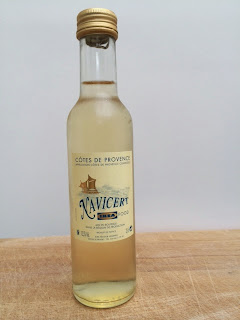It was the morning after one of our dinner parties. A convivial evening, involving a couple of bottles of the excellent Ricasoli Chianti Classico Riserva 2010, a wine of beauty (which is all ye need to know), after which I had been contentedly dead to the world. I blearily descended to a cluttered kitchen, and asked Mrs K how she had slept.
“You were snoring,” she said, bitterly. “You always snore when you’ve had too much wine.”
Well, this was the first I’d heard about this. Various negative side-effects have been levied in the past against my wine-drinking, but snoring had not been among them. Although it's fair to say that wine has taken the rap for a significant number of my failings, from the medical and social to the financial and psychological.
Belligerence, for example. Plutarch, the Graeco-Roman essayist, said that the openness encouraged by wine led to a better level of debate at the dinner table. “Wine inspirits some men, and raises a confidence and assurance in them,” he wrote, “but not such as is haughty and odious, but pleasing and agreeable.” Which seemed to me a jolly good reason for oiling dinner party conversations with plenty of wine. Then I was enlightened by my good wife that far from being pleasing and agreeable, in fact I was philosophising so aggressively that guests became frightened.
Now I have to be more contemplative over my glass, hoping to stay on the right side of that fine line between judicious thoughtfulness and that other potential side-effect of wine, a surly silence.
Is wine-drinking responsible for extravagance, as I was once accused? I think not. When it comes to wine, one buys what is needed; you wouldn’t accuse a driver of extravagance for buying petrol.
Besides, it is hard to be extravagant in Sainsbury’s.
In fact, my wine bill is incredibly modest, and no, it is not going to lead to poverty. And if it did, well, there are some less necessary expenditures I could point to, like food, heat and lighting. I can’t say I regret my spending on wine; I have to agree with the late great Vivian Stanshall, who said that “If I had all the money I’ve spent on drink, I’d spend it on drink.”
No, any extravagance is reserved for special occasions. Like Christmas dinner, when, as I recently insisted to CJ, things have come to a pretty pass if you spend more on your turkey than on your wine.
Some supposed side-effects of wine are down to simple misinterpretation. Wine does not, for example, induce selfishness. The wine had spent most of its time the preceding night at my end of the dinner table out of social courtesy. I was assisting the designated driver not to drink, empathising with the chap on painkillers for his back, and acknowledging Mrs K’s modest consumption, by saving them all the embarrassment of declining repeated offers of wine.
And I’m quite happy myself to suffer minor, temporary physical side-effects like stained teeth. They may even pass unnoticed. Unlike an increasing number of television celebrities, I have teeth which reflect a lifetime’s eating and drinking. My teeth are a proper older Englishman’s teeth, the colour of cardboard. They have not been artificially rendered to resemble a mouthful of bathroom tiles.
But this snoring business is obviously affecting someone else. And having looked into ways in which I might deny it, I’m sorry to say that there does seem to be a genuine link between the two. Drinking wine can cause a relaxation in the muscles at the back of the throat. (Which, had I known, perhaps I could have blamed for my growling at guests…) It seems that inspiratory resistance, which causes snoring, can increase fourfold after drinking.
And the only remedy I could find online was that of abstinence. Which sounded to me like the old Tommy Cooper joke about the man who goes to his doctor, and says “My arm hurts when I do this…”, to which the doctor replies “Well, don’t do it then.”
However, Mrs K said that she halted the snoring, with a judicious kick. So I can only conclude that an irrefutable side-effect of my wine drinking must be a deep sleep. Deep enough to render one oblivious to four-fold inspiratory resistance, surely a beneficial side-effect if one sleeps alone. And deep enough to render one oblivious to a kick, if one does not.
Nightcap, anyone?
PK







